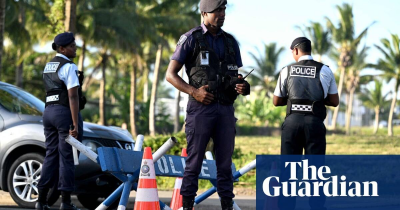The Guardian-Fiji to stick with China police deal after review home affairs minister says
March 15, 2024 4 min 705 words
这篇报道揭示了斐济政府经过审查后决定维持与中国的警务合作协议。尽管此前斐济曾对该协议存在争议,但现在他们选择坚持。协议涉及警务人员培训、情报交换和装备供应等多个方面。然而,协议的维持引发了一些关切,包括两国价值观和司法制度的差异。这表明在国际关系中,实际利益和政治考量常常超过了意识形态和价值观念。此外,报道还提到了斐济国内对中国警务合作方式的质疑,认为在中国接受的培训不适合斐济的文化和实际需求。这一观点暗示了在合作中需要更多地考虑本土文化和价值观的因素。对于太平洋岛国来说,国际合作对于资源和安全方面的支持至关重要,而中国在该地区的角色正在不断加强,这也引起了一些国际担忧和关注。
Fiji will uphold a policing cooperation agreement with China after reviewing the deal, the country’s home affairs minister, Pio Tikoduadua, has confirmed, despite earlier concerns within the Pacific nation over the deal.
The controversial agreement was signed in 2011 when Fiji was under military rule. Under the deal, Fijian officers have been trained in China while Chinese police have been embedded in the Fijian force. Beijing has also provided hi-tech equipment including surveillance gear and drones.
The deal has been under review after Fiji’s prime minister, Sitiveni Rabuka, raised concerns last year over the countries’ differing values and judicial systems.
Tikoduadua said the review had been completed and Fiji would be sticking with Beijing.
“We are now back on the original police agreement [with China] – that has been restored, we had reviewed it for 12 months,” he said in an interview with the Guardian.
The agreement allows for co-operation in a range of areas including the exchange of intelligence, visits, training and the supply of equipment. For example, ahead of Fiji’s 2014 election, China provided vehicles, communications and surveillance equipment.
In the past, Chinese officers have been embedded in the Fiji police force. The home affairs minister said the two countries would decide how they implemented the agreement in the future – including any exchanges of personnel – but at present no Chinese officers were embedded in the force.
“There will only be Fijian officers training in China and no embedding of Chinese officers in the Fiji police force now,” Tikoduadua said.
Shortly after coming to power in December 2022, Rabuka told local media that he saw “no need” for the police agreement with China to continue. In June last year, prior to signing a defence agreement with New Zealand to strengthen military ties, Rabuka appeared to soften his position and said the agreement would be reviewed before any decision was made.
“We need to look at that again before we decide on whether we go backward or continue the way we have had in the past: cooperating with those that have similar democratic values and systems of legislation, law enforcement and so on,” Rabuka said at the time.
When asked by the Fiji Sun newspaper this week about the China policing deal, Rabuka said he had not received any updates from the home affairs minister in relation to the agreement.
A former senior officer in the Fiji police force has raised concerns with the method of training Fijian officers receive under the China deal, highlighting the differences in values and systems between the two countries.
“Current service in the Fiji police force is not working out right now because we had copied Singaporean and Chinese kind of system, which is not relevant,” Tevita Ralulu, who worked as a senior investigative officer in Suva, told the Guardian this week.
“We are supposed to have our own culture of service and to modify a system to suit the culture of people living in Fiji, that’s why the training done in China really didn’t work,” Ralulu said.
The acting commissioner of police, Juki Fong Chew, said the Fiji police force was fortunate to benefit from various forms of assistance from regional and international partners.
“The assistance ranges from police-to-police exchange programs, technical support, study and training opportunities, capacity building initiatives, coordination and cooperation efforts based on operational needs,” he said.
Pacific nations rely on support from international partners – notably Australia and New Zealand – to help resource their police forces. China’s role in security and defence includes funding the construction of a new police training centre in Samoa in 2016 and funding police headquarters in the Cook Islands. Other assistance from Beijing includes suppling vehicles, riot equipment and uniforms to the Vanuatu police, and vehicles to Papua New Guinea.
Last year, China and Solomon Islands signed a deal on police cooperation as the nations continued to deepen ties, and after sealing a security pact in 2022 which caused alarm in the US and some Pacific neighbours including Australia. Also in 2022, China attempted to forge a regional security pact with Pacific nations but failed to secure support.

